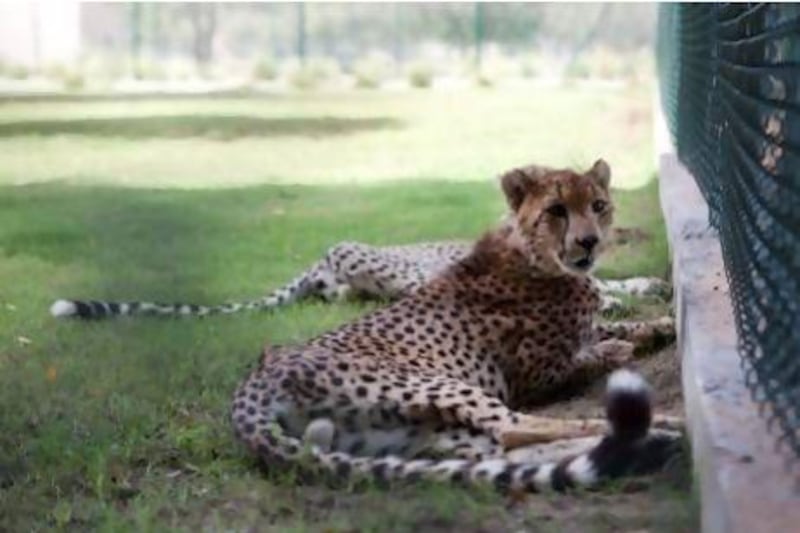DUBAI //A research project is showing the enormous scale of the illegal trade in big cats and other endangered wildlife advertised on websites in the UAE.
A survey over four weeks by the International Fund for Animal Welfare (Ifaw) showed a total of 796 live animal advertisements were posted on 11 websites.
None included documentary proof that those who placed them were complying with the law, and only 20.7 per cent of the ads said the necessary documents were available.
Ifaw plans to repeat the exercise to see whether the trade is increasing.
A typical posting on a Dubai classified site offered a selection of big cat cubs.
"We are a breeder of a wide variety of exotic animals such as cheetah cubs, cougar cubs, jaguar cubs, leopard cubs, black panther babies, lion cubs, yellow and white Siberian tigers and Bengal tiger cubs," the ad said.
"We offer mostly the tamed babies of four to 16 weeks from our collection. We consistently offer high-quality and well-trained exotic pets for low prices."
The ad quotes a price of Dh800.
Another ad said: "Our cheetah and cougar cubs are all home-raised, accustomed to children, other pets and guaranteed friendly."
Big cats are popular with collectors and exotic pet owners in the UAE. They are often bought as cubs but become dangerous when they grow up.
Some of the big cats in the ads had been declawed.
Other animals on offer included chimpanzees, monkeys, parrots, ospreys, vultures, eagles and falcons.
The organisation said in a briefing paper on the Killing with Key Strokes survey: "Ifaw was shocked by not only the quantity of wild animals for sale, including big cats, primates, and other species listed under the Convention on International Trade in Endangered Species (Cites), but also by the questionable legality of the items themselves.
"Overall the result of these investigations shows a high volume of trade with hundreds of potentially illegal items offered for sale on websites, predominantly in the UAE."
Dr Elsayed Mohamed, Ifaw's Middle East regional director, said: "Under UAE legislation it is forbidden to offer for sale any Cites-listed species without registration with the Ministry of Environment and Water.
"Unless they show in the ad that they are registered by including a scan of the registration document, it is illegal."
Penalties are a minimum of three months in jail and a fine of between Dh5,000 and Dh30,000.
"We'd like the internet companies to take a stand and ban this stuff, as eBay did with ivory," Azzedine Downes, Ifaw's global president and chief executive, said in Dubai last week.
"Companies in the UAE should not just wait for new legislation, they should have corporate responsibility and ban it themselves to make a very public statement."
Mr Downes was in Dubai for the first of a series of meetings with major companies aimed at boosting awareness of the exotic pet issue.
"It is shocking to see a trade in Cites-registered species that are threatened in the wild," said Dr Nick Mitchell, a conservationist in Tanzania. "The exotic pet trade does affect the wild populations, we're sure of that."
Dr Mitchell, a specialist in cheetah and wild dog conservation, is in the UAE to research the illegal trade.
csimpson@thenational.ae
Illegal wildlife trade in big cats is thriving on UAE websites
A survey over four weeks by the International Fund for Animal Welfare (Ifaw) showed a total of 796 live animal advertisements were posted on 11 websites.

Editor's picks
More from the national





